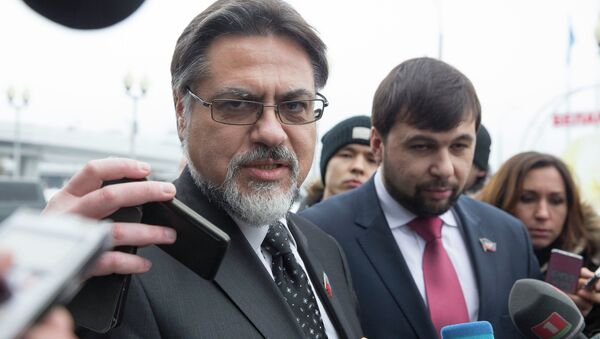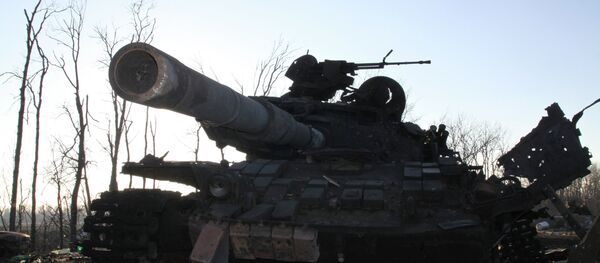"There is still hope that the [next] meeting will be held in February," Vladislav Deinego told RIA Novosti.
The Contact Group on Ukrainian reconciliation comprises envoys from Russia, the Kiev government, and self-proclaimed Donetsk and Luhansk people's republics (DPR and LPR) in eastern Ukraine, as well as from the Organization for Security and Co-operation in Europe (OSCE).
Deinego said earlier in the day that Thursday's Contact Group video conference centered around the heavy weaponry withdrawal from the line of contact by the parties in conflict.
"Both Luhansk and Donetsk are moving according to the plan, agreed to by Ukraine as well. So far, Ukraine is not complying with the plan," the envoy told RIA Novosti.
The LPR envoy expressed hope the sides would reach a consensus on the issue of large-caliber weapons withdrawal on Friday, when the video conference was set to continue.
The latest major deal on Ukrainian reconciliation signed by the Contact Group members was the February 12 Minsk Agreement worked out by the leaders of Russia, Ukraine, France and Germany.
The document envisions a ceasefire in east Ukraine, the pullout of heavy weaponry from the contact line, an all-for-all prisoner exchange, a pardon and amnesty for those involved in the conflict, as well as constitutional reform in Ukraine.
As agreed by the sides, a ceasefire in the region came into force on February 15 and militias began the unilateral withdrawal of heavy weaponry.
Kiev began its pullout of 100-millimeter anti-tank guns on Thursday, with plans to move heavier arms even further from the frontline as part of the withdrawal's second stage.




